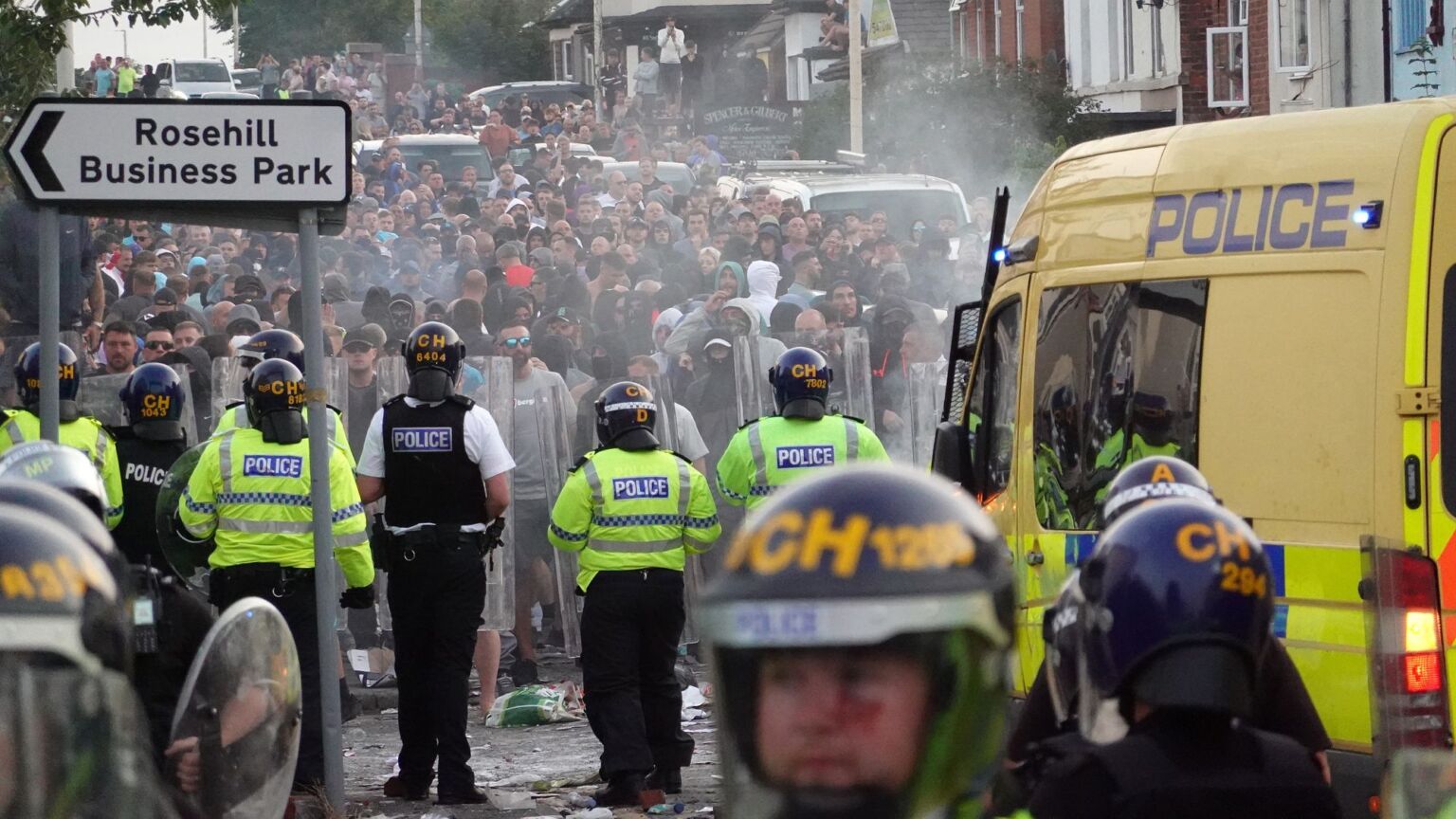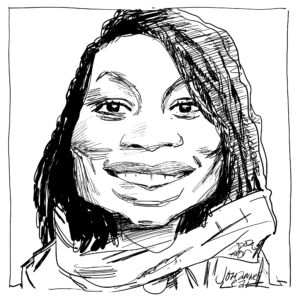Britain is coming apart at the seams
Weeks of unrest have revealed tensions, anger and a collapse in social trust that can no longer be ignored.

Want to read spiked ad-free? Become a spiked supporter.
The UK feels like a powder keg, threatening to explode at any moment. Recent events have exposed a simmering national anger and a pervasive sense that our social fabric is fraying beyond repair. Last week’s Manchester Airport altercation, the riots in Harehills, Leeds last month and the heinous murder of three innocent little girls in Southport earlier this week have all created an alarmingly volatile atmosphere.
While the violence and rioting are unquestionably wrong (and partly fuelled by outright misinformation), they are, unfortunately, not surprising. For years, the British establishment either ignored or vilified those who voiced concerns about Britain’s crisis of cohesion.
When Keir Starmer won the General Election last month, we were reassured by establishment voices that a period of calm and stability was upon us, despite clear signs to the contrary. Even former Labour prime minister Tony Blair conceded that these issues cannot continue to be ignored. In a recent interview, he stated: ‘You’ve got to be honest about this on the left if you want to deal with the problem. There’s an anxiety about people coming in from Muslim countries as to whether they are truly going to integrate with society or whether you might have security problems to do with extremism.’
This mood of mounting anxiety and distrust is about more than immigration, though. It is also about the way in which the establishment has shut down anything or anyone that calls into question the multicultural fantasy that is sold to us.
The systematic cover-up of largely Pakistani-Muslim grooming gangs by the authorities is a striking example of the elites prioritising political correctness over victims of crime. Anytime grooming gangs were mentioned and discussions arose about whether the cultural attitudes of particular communities may have contributed to it, the conversation was shut down as an example of racism and Islamophobia.
Then there is the growing problem of Islamist terrorism. Over the past decade, there have been far too many terror attacks and many more have been thwarted. Just last month, an Islamist extremist was found guilty of plotting to bomb the hospital where he worked. Yet despite this looming threat, we seem unable to have serious conversations about Islamism. When Sir David Amess was murdered by an Islamist in 2021, the discussion around his death absurdly focussed around social-media civility. When 22 people were killed at the Manchester Arena in 2017, we were told to not ‘look back in anger’.
From the Batley Grammar School teacher forced into hiding by Islamist intimidation to Muslim MP Shabana Mahmood being called an infidel for standing for the Labour Party, the thuggish behaviour of Islamists has become all but normalised.
Then there are the scores of foreign criminals who, despite committing heinous acts, have been allowed to stay in the country. When Abdul Ezedi attacked a woman and her two children with a corrosive substance in Clapham, London this year, many were shocked to learn he was granted asylum despite being denied multiple times previously. He had also committed two sexual offences while in the UK. Yet instead of discussing how we can better remove foreign criminals or prevent them from coming here in the first place, Labour MP Bell Ribeiro-Addy and Conservative MP Caroline Nokes went on BBC Two’s Newsnight to talk about sexist microaggressions.
The list goes on. There’s the extraordinary rise in shoplifting and its de-facto decriminalisation. The two-tier policing, with officers vacating their duties in Harehills but arriving in full force for far-right riots in Southport and elsewhere. The blaming of any and all opposition to the status quo on ‘Russia’. The never-ending crackdowns on our freedoms. The takeover of identity politics. It has all created an atmosphere of social breakdown, racial division and a sense that communities have been abandoned.
It is troubling to think how bad things might have to get before the establishment changes course. But it’s high time we had an honest and open national conversation about where we’re going as a society. The unrest and violence we are witnessing are not isolated incidents, but symptoms of much deeper issues.
If we continue to ignore these underlying problems and demonise those who raise them, the social fabric of our nation will continue to fray. At the end of this road is only more unrest, more division and much worse besides. It’s time to tell the truth.
Inaya Folarin Iman is a spiked columnist and founder of the Equiano Project.
Picture by: Getty.
Who funds spiked? You do
We are funded by you. And in this era of cancel culture and advertiser boycotts, we rely on your donations more than ever. Seventy per cent of our revenue comes from our readers’ donations – the vast majority giving just £5 per month. If you make a regular donation – of £5 a month or £50 a year – you can become a and enjoy:
–Ad-free reading
–Exclusive events
–Access to our comments section
It’s the best way to keep spiked going – and growing. Thank you!










Comments
Want to join the conversation?
Only spiked supporters and patrons, who donate regularly to us, can comment on our articles.